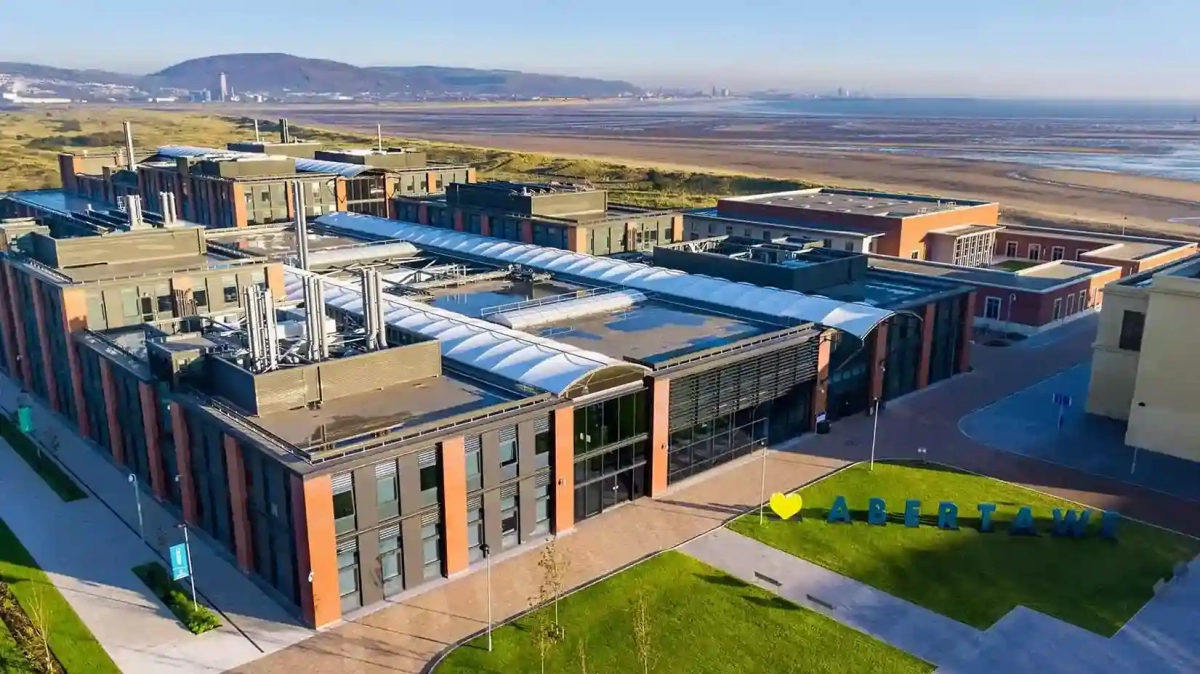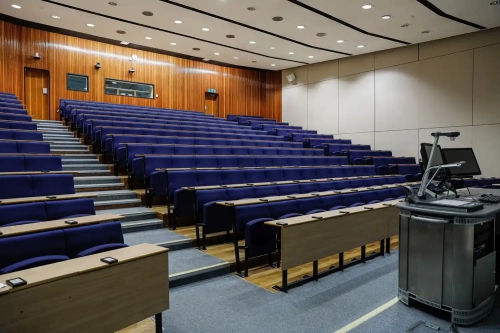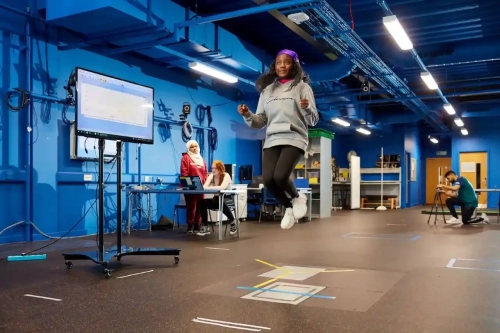About
Swansea University is a research-led institution with a history dating back to 1920, renowned for its excellent teaching and research, and a vibrant campus life on the waterfront.
| Acronym |
SU |
| Motto / Slogan |
Technical skill is bereft without culture |
| Colour |
Blue and white |
| Founded |
1920 |
| Location |
Swansea, Wales, United Kingdom |
| Address |
Swansea University Singleton Park Swansea SA2 8PP Wales, UK |
Mission
Educating students to become independent and critical thinkers.
Actively involving the university in the wider Swansea Bay region and beyond.
Providing a high-quality, supportive, and engaging experience for all students and staff.
Offering a range of support services to empower students and remove barriers to learning.
Recognizing its role as the region's university, serving the City of Swansea and the surrounding area.
Vision
Swansea University's vision is to be a principled, purposeful, and resilient university that balances excellent teaching with world-leading research and innovation.

Objectives
Swansea University's primary objective is to be a principled, purposeful, and resilient university with a strong commitment to teaching, research, and innovation.
Fees
Undergraduate Tuition
Indigenous Students
GBP 9,535
International Students
GBP 19,600 - GBP 23,900
Postgraduate Tuition
Indigenous Students
GBP 2,500 - GBP 8,100
Admission
Undergraduate Admission Requirement
- Some programmes will have specific prerequisite subject and/or content requirements. These will be detailed on the relevant course page.
- Please check the school's English Language requirements page for specific advice on eligibility.
- If you do not meet the minimum entry requirements, then don’t worry: you may be eligible for an Undergraduate Pathway programme with The College, Swansea University. Find out more here.
Supporting Documents
- Copies of your degree certificates and academic transcripts
- References (if you have not asked us to contact your referees directly)
- Evidence you meet the English language requirements
- Personal statement
Postgraduate Admission Requirments
To be considered for postgraduate study you must satisfy the University's general entry requirements as well as any specific requirements for your chosen programme.
- Generally, the minimum entry requirement for taught courses is a lower second-class honours degree (2:2), or equivalent. However, a number of courses require an upper second-class honours degree (2:1), or equivalent, please see individual course pages for information.
- An application from you is welcome if you have significant and relevant full-time work experience, but don’t have a bachelor's degree (or equivalent). Applications will be judged on an individual basis.
- As a guideline, the normal expectation for you to demonstrate significant experience will be at least 3 years full-time experience if your highest qualifications are school Advanced level and 5 years if your highest qualifications are GCSE level. The relevance of your experience will also be considered.
- The school's decision will take account of both the significance of your experience and its relevance to your chosen programme of study. Please note that you will also be asked to demonstrate that you can undertake work of an appropriate standard and any evidence should be included in your application form (for example, please include a transcript if you have already studied a stand-alone M-Level module).
- You will need to ensure that your academic and English language qualifications meet the school's entry requirements by the start of your course. You can check the comparability of your qualifications with their entry requirements by reviewing the Country Specific Entry Requirements.
Supporting Documents
- A fully completed application form
- A Resume (CV)
- A Personal Statement
- Copy of qualifications to date, i.e., degree certificate and transcripts
- English language score (IELTS, TOEFL, etc.), if available
How To Apply For Admission
FOR POSTGRADUATE:
- Your starting point to gaining a place at Swansea University is to choose what course or subject you wish to study from the school's Our Courses page or their Prospectus.
- When applying for a postgraduate degree be sure to include your supporting documents
- Apply Online using the Learner Gateway Application Portal.
This option is ideal for all postgraduate candidates, with the exception of our Postgraduate Legal Practice Course, Law and Legal Practice, LLM and Professional Legal Practice, LLM programmes. To apply for the above Law programmes, please go to: www.lawcabs.ac.uk. - PLEASE NOTE: Applicants for PhD/EngD/ProfD/EdD - to support the school's commitment to providing an environment free of discrimination and celebrating diversity at Swansea University you are required to complete an Equality, Diversity and Inclusion (EDI) Monitoring Form in addition to your programme application form. Please click the following link to complete your Equality, Diversity and Inclusion (EDI) Monitoring Form (online form)
- Upon receiving your online Application form you will be sent a confirmation email or letter outlining your application and the timescale of a decision.
- With the 'Learner Gateway' Application Portal you can view the progress of your application system. On applying you will be given a unique reference number, which you can then use to load a saved application form. Your application, whilst being completed, can be saved at various points before being submitted; an uncompleted application can be returned to up to 1 month after you started it. If you have applied online, you will receive regular email updates on what stage your application is at e.g. when your application has arrived, when it has been forwarded to a departmental admission tutor, when the department has made a decision about your application and when the decision letter has been sent.
- If you have not sent all your supporting documents with your application, please do so as soon as possible so that your application can be considered and a decision made on whether to offer you a place. Please quote your Swansea student number in all correspondence with us. Your application will be considered “complete” once your supporting documentation is received and will be considered by our Admissions tutors.
- If you are successful in your application, you will receive an offer letter from the school setting out any conditions you will need to meet before you can enrol, the cost of your course and the date on which it starts. Your offer will be either Conditional or Unconditional:
- Conditional means that you have not yet satisfied the academic, English language or any other entry requirements (such as references). Details of our offer conditions and how you can satisfy these requirements will be given in your offer letter.
- Unconditional means that you have met all the academic, English language or other conditions (international applicants will be advised on how to obtain a statement).
FOR UNDERGRADUATE: As an international student, you can apply to the school directly, free of charge.
- Choose a Course:
Your starting point to gaining a place at Swansea University is to choose what course or subject you wish to study from the school's Course Pages or Prospectus. - Make an application
Apply online using the Learner Gateway Application Portal. The application system is free, and you can save your application before submitting. Throughout the process you will be given guidance on how to complete the form. - Keep Track of your Application
With the 'Learner Gateway' Application Portal you can view the progress of your application system. On applying, you will be given a unique reference number, which you can then use to load a saved application form. An uncompleted application can be returned to up to 1 month after you started it.
Admission Contacts
Email: [email protected]
Phone : +44 (0)1792 295358, +44 (0)1792 295111
Apply For Admission
Vice Chancellor
Professor Paul Boyle was appointed Vice-Chancellor of Swansea University in 2019. Prior to this, he was President and Vice-Chancellor of the University of Leicester. Previously, Paul was Chief Executive of the Economic and Social Research Council (ESRC), the UK’s largest funding agency for social science research; the International Champion of Research Councils UK, with responsibility for intern
... read moreational strategy on behalf of all seven UK research councils; and President of Science Europe, representing over 50 European funding agencies.
History
The University's foundation stone was laid by King George V on 19 July 1920 and 89 students (including eight female students) enrolled that same year. By September 1939, there were 65 staff and 485 students.




